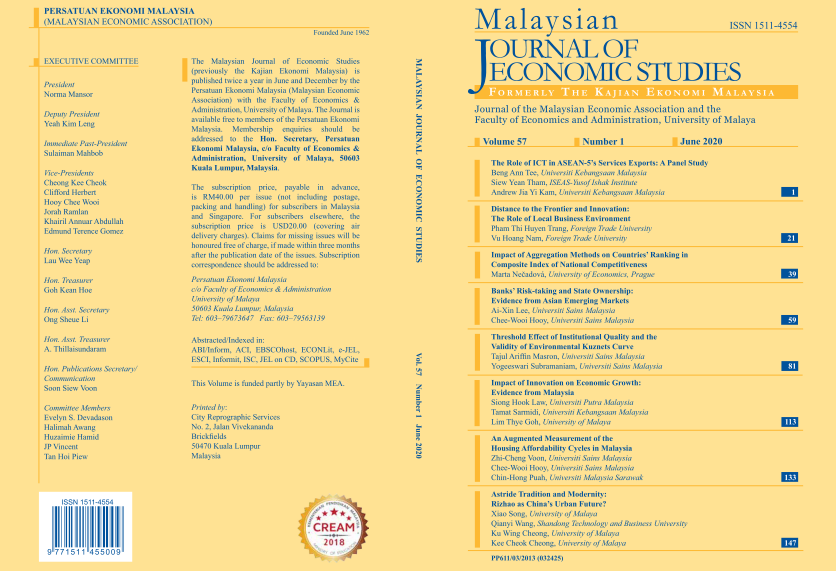Banks’ Risk-taking and State Ownership: Evidence from Asian Emerging Markets
DOI:
https://doi.org/10.22452/MJES.vol57no1.4Keywords:
Asian emerging markets, bank risk-taking, board, corporate governance, state ownershipAbstract
This paper examines the relationship between state ownership and banks’ risk-taking in nine Asian emerging markets for the period 2009 to 2017. The finding shows that state-owned banks are associated with higher risk-taking in terms of credit risk and return volatility. In addition, we investigate the effect of corporate governance (CG) mechanism with monitoring committee, board independence and gender diversity on state-owned banks’ risk-taking. We find that the presence of monitoring committee on board has a reducing effect on state-owned banks’ risk-taking. We further argue that independent directors help to reduce banks’ risk-taking where their supervision should be robust enough even if there is huge government intervention. Nonetheless, we do not find strong evidence on the role of female directors. In a nutshell, board functions play a crucial role in monitoring and supervising banks’ investment decisions to prevent excessive risk-taking from the government, which is relatively important in the context of Asian emerging markets.

